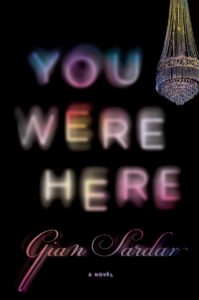 In our new feature, Between the Sheets, TrunkSpace picks the imaginative brains of authors to break down what it takes to create the various worlds and characters they breathe life into via the tools of their trade… sheets of paper. While technology continues to advance and change the pop culture landscape, the written word has remained one of the most consistent and imaginative art forms.
In our new feature, Between the Sheets, TrunkSpace picks the imaginative brains of authors to break down what it takes to create the various worlds and characters they breathe life into via the tools of their trade… sheets of paper. While technology continues to advance and change the pop culture landscape, the written word has remained one of the most consistent and imaginative art forms.
This time out we’re chatting with “You Were Here” author Gian Sardar to discuss the panic upon hitting send, when she found her voice as a writer, and what an ideal work day would look like if she had a magic wand.
TrunkSpace: “You Were Here” is a much different book than your debut “Psychic Junkie.” With that being said, did you approach the way you wrote the book differently?
Sardar: Absolutely. “Psychic Junkie” was a true story, the life of Sarah Lassez, and though I lived most of it with her as her roommate and close friend, I still had to defer to her when it came to choices – so my writing was not only hitched to truth, but to another’s opinion. As I was writing “You Were Here,” I only answered to myself, and that freedom was both exciting and at times frightening.
TrunSpace: “You Were Here” gets down and dirty with some pretty heavy subject matter. Words can really paint a picture of terror for a reader and place them in the shoes of the characters within a story. Do you think about that… giving goosebumps to your readers… when you’re working on a book or a particular scene?
Sardar: Yes! For those certain scenes I can only hope I give goosebumps to my readers, because if I did, the scene was successful. I know that while writing it I spooked myself on a few occasions, as I have the unfortunate tendency to do a lot of writing around 2 or 3 AM, and let me tell you, it’s very dark then, and the house is very quiet…not always the best time to write scary scenes.
TrunkSpace: Cover art has become so eye catching and often times very complex. “You Were Here” takes a more with less approach. What was the thought process behind the design?
Sardar: I was lucky enough to have the Putnam design team on my side, and so I must credit them fully for the beautiful cover. What I love is the sense of mystery, the hazy lettering, the hints of so much more. It does such an amazing job of capturing the essence of the book – and both the time periods – in such a simple way.
TrunkSpace: Writers put so much time and energy into a book. What is the first thing you did when completing the final draft of “You Were Here” and how long was it before you started writing again?
Sardar: Honestly, the first thing I did after hitting “Send” was freak out and start reading it again. I had to force myself to walk away and not look at it, because I knew if I did I would see a dozen things on every page that needed changing. So it took physical willpower to walk away. And though I’d been excited to get back to a project I’d started while waiting for notes and edits, I definitely needed a buffer zone, so to speak, after finishing this one before diving into anything else. What helped was reading, dipping into other worlds. A book every other a day for a couple weeks was just what the doctor ordered.
TrunkSpace: With that same idea in mind, is it hard to let go of a manuscript and call it “complete” when you put so much of yourself into it?
Sardar: Yes! If you let me sneak into the printers’, I’d make changes even now. The only reason I finally considered it done was because they had to cut me off and tell me no more changes. And I don’t just mean on the sentence level, but when you’re that immersed into a world the characters stay with you and might just whisper in your ear that they’d like another scene or two. It’s definitely hard to consider it complete when it still lives within you.
TrunkSpace: What did you learn about yourself as a writer in the process of writing your first two books and how do you hope to apply that to your career moving forward?
Sardar: Trust. I learned that the answers come to me, they always do, so I just need to trust. With my fiction, not everything is figured out when I start – I have a loose outline and a lot of questions and often I know where I want to go but not how I’m getting there. I discover a lot in the writing process. But when you’ve got a blank page, it’s hard to remember that it will all, somehow, miraculously, come together. I need to keep that in mind and spend less time worrying and more time trusting.
TrunkSpace: How long did it take for you to discover your voice as a writer?
Sardar: That’s a good question. I think it’s been there since college, but it’s certainly evolved based on my own changing view and interest in the world.
TrunkSpace: Regarding the process, is writing a labor of love for you or does it feel more like labor? Do you enjoy the process?
Sardar: I love writing. Nothing makes me feel more elated than when I had a good writing day. Of course sometimes questions arise about plot or character, something I need to figure or make
sure is working, and that’s when there’s anxiety involved. But even then, if I just sit down to write, whether it’s something I keep or not, I’m transported. And that’s when I need to remember to trust, that if I give myself time it will come together. I never worry about “wasted pages” that never see the light of day, because it’s the writing process I love and sometimes I just need to write to work through whatever’s got me caught, just so I can feel inspired.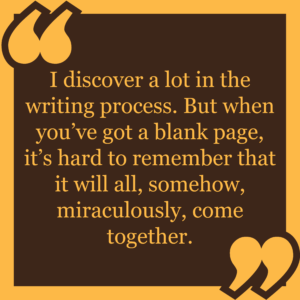
TrunkSpace: And what does that process look like? What are the ideal conditions for putting in a good day of writing?
Sardar: If I had a magic wand, I’d create a rainy day that starts at 4 AM and involves me writing on the couch under a blanket until about 10 AM. Of course that would involve someone else making my son breakfast and taking him to school, and since my husband is at work at 6:30 AM it’s obvious this is all fantasy. In reality I’d take just waking very, very early in the morning (3 or 4 AM), getting in a few hours of writing and then taking my son to school. Then I’d come home and read a bit, then write some more and hopefully take a short nap before picking my son back up.
TrunkSpace: Do you self-edit as you write?
Sardar: Yes. Every day, when I start writing, I back up and re-read and edit what I wrote the day prior, and once I’ve done that I start with the new material. Then, periodically, I’ll read from the beginning as well, to see how things are working. I find so much in the editing process that it helps to go back and re-examine and tweak constantly. Editing is my favorite part of writing.
TrunkSpace: Where are you the hardest on yourself as a writer?
Sardar: Can I say “everything”? It all depends on the day – some days are just off from the start and on those days I can do nothing right. In general though, I tend to be very critical of my dialogue, so that’s something I’m constantly examining.
TrunkSpace: What are you working on now and what will people be able to read next?
Sardar: I’m about mid-way through writing another novel, but am keeping it quiet so I don’t jinx anything. (Laughter)
You Were Here, published by G.P. Putnam’s Sons, is available May 16.



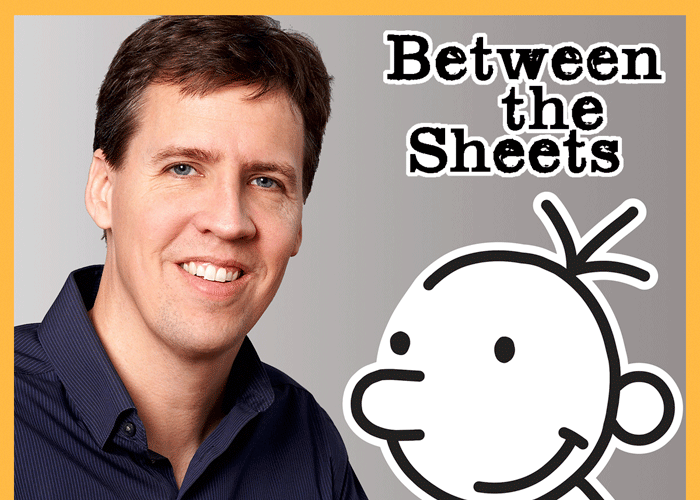
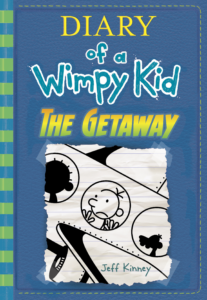 In our new feature, Between the Sheets, TrunkSpace picks the imaginative brains of authors to break down what it takes to create the various worlds and characters they breathe life into via the tools of their trade… sheets of paper. While technology continues to advance and change the pop culture landscape, the written word has remained one of the most consistent and imaginative art forms.
In our new feature, Between the Sheets, TrunkSpace picks the imaginative brains of authors to break down what it takes to create the various worlds and characters they breathe life into via the tools of their trade… sheets of paper. While technology continues to advance and change the pop culture landscape, the written word has remained one of the most consistent and imaginative art forms.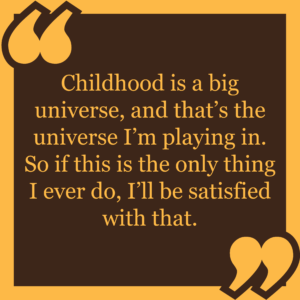
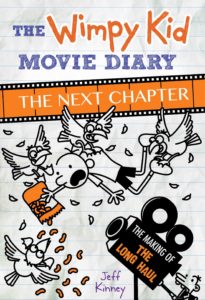 TrunkSpace: The success of the brand has gone beyond just books themselves. As the profile of “Diary of a Wimpy Kid” continued to grow, did people try to influence your writing/books? Did it feel like those on the outside were trying to have a hand in the one aspect that you had entire creative control over?
TrunkSpace: The success of the brand has gone beyond just books themselves. As the profile of “Diary of a Wimpy Kid” continued to grow, did people try to influence your writing/books? Did it feel like those on the outside were trying to have a hand in the one aspect that you had entire creative control over?